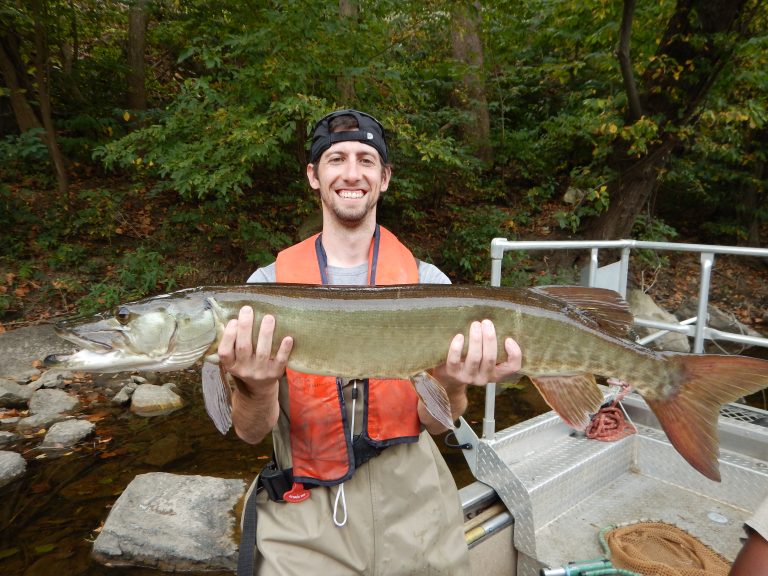
An oceanographer living in D.C.
An oceanographer living in D.C. By Alessandra Burgos | 2019 Knauss Fellow The following blog post is by Alessandra (Ali)
By DR. Lydia Bienlien | Virginia Institute of Marine Science
Ah, jargon. Make sure you don’t use it. It makes you sound snobby. Or maybe you should use it. It demonstrates your expertise and understanding of a topic. Don’t you want to be taken seriously and speak concisely? Well, it depends on the audience and situation…or does it?
The confusion with jargon beings with the definition itself. The first definition provided by Merriam-Webster, “the technical terminology or characteristic idiom of a special activity or group” is a bit broad but hits on some key points of words or phrases and exclusive groups. But the second definition is, hopefully, trying to be a bit ironic. That is, “obscure and often pretentious language marked by circumlocutions and long words.” So, jargon can be uncommon words or phrases used within a specific context that have an agreed upon meaning for those “in the know.”
No doubt, every specialty has jargon. I remember the first time I read the word ubiquitous in an academic paper. Sounds great, but once I looked it up, I discovered it basically just means “found everywhere.” Not very exciting, but sure sounds good. Ubiquitous is used so often in an academic setting, that I don’t usually notice it now. Jargon includes abbreviations and can also be quite technical, like qPCR (quantitative polymerase chain reaction, a common method of measuring DNA). Jargon can be especially difficult to track down when it’s only heard in conversation and pronounced as words, like “Nif-wif” and “Reggie” (defined below).
But the Virginia Sea Grant Commonwealth Coastal & Marine Policy Fellowship has given me the opportunity and reason to learn some more broadly practical jargon — terms in the political and public administration realm. Practical because as a private citizen, these are conversations and topics I should be aware of to inform how I vote or what programs I could support or be a part of. Knowing what these abbreviations stand for makes it easier to look up more information about them. A scientist by training, this vocabulary is not standard to my field.

Knowing what these abbreviations stand for makes it easier to look up more information about them. A scientist by training, this vocabulary is not standard to my field.
I definitely ran into “alphabet soup” when I first started my fellowship, despite having completed a marine policy sub-concentration during my Ph.D. There were some terms and abbreviations that I was already familiar with:
But then there was a whole slew of context-dependent abbreviations and programs I needed to bring myself up to speed:
Quite a lot to keep track of! Of course, the terms I’ve listed are skewed to the topics and specialties I’m working on for my fellowship. Yet, some people may read this and think “all those terms are obvious” because they use these words every day in their field. Others might not have even heard of them. That why it’s important to provide the definition up front every time you use jargon in a new situation. Or maybe not use jargon at all, except for industry specific occasions.
I’ll admit I might have unintentionally added to the confusion, too. For my fellowship, I’m currently working on a Community Outreach and Engagement Plan and it’s just so much easier to write COEP — so I do. But I try to always define it the first time I use it in any new document or email.
In less than a year, I already find myself easily communicating with the terms I’ve mentioned. Knowing jargon can be helpful. It gives you credence in a field of knowledge and is a passkey into conversations with specialists — conversations that are key as we deal with increasingly complex issues in society. But it can also be a barrier. Making topics seem needlessly difficult can exclude important perspectives and knowledge from the conversation. In the end, I guess I recommend knowing as much jargon as you can, but avoiding using it when possible.
Dr. Lydia Bienlien is a Virginia Sea Grant Commonwealth Coastal & Marine Policy Fellow with the Department of Conservation and Recreation working on coastal resilience. She earned her Ph.D. from the Virginia Institute of Marine Science.
Photos contributed by Lydia Bienlien
Portrait by Aileen Devlin | Virginia Sea Grant
Published July 19, 2022.
In the end, I guess I recommend knowing as much jargon as you can, but avoiding using it when possible.

An oceanographer living in D.C. By Alessandra Burgos | 2019 Knauss Fellow The following blog post is by Alessandra (Ali)

Pinnacle of Lifelong Interest: 2017 Knauss Fellow becomes “go-to” expert on all things marine By Willy Goldsmith | Virginia Institute

Confidence, Validation, Success, Gratitude:2017 Commonwealth Fellow grows, makes impact By Andrew Kirk | Virginia Commonwealth University Commonwealth Fellow Andrew Kirk

Above: Gina Digiantonio on the left with leadership from the U.S. Coral Reef Task Force visit Biscayne National Park. New

Your request has been submitted.
Stay up-to-date on fellowship, internship, training, and research funding opportunities offered by Virginia Sea Grant.